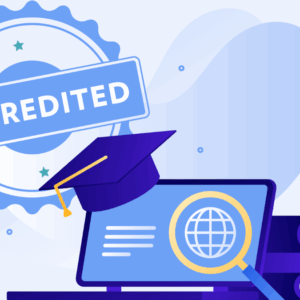Introduction
Undergraduate studies mark a transformative phase in a student’s life. These years are more than just a pursuit of academic qualifications—they form the foundation upon which future careers, personal growth, and lifelong values are built. From choosing a major and mastering new subjects to developing social skills and personal independence, undergraduate education shapes individuals in profound and lasting ways.
Navigating undergraduate studies successfully requires more than just attending classes. It calls for adaptability, self-awareness, strategic planning, and the courage to explore new possibilities. In today’s dynamic world, students must treat these years as a launching pad toward a well-rounded and purpose-driven life.
Choosing the Right Path: The Power of Academic Alignment
One of the earliest and most crucial decisions in undergraduate studies is selecting a major or field of study. While some students have a clear direction, others may feel uncertain. Exploring introductory courses, consulting faculty or advisors, and reflecting on personal interests can help students discover their academic passion.
Many institutions now offer flexibility to change majors, combine disciplines through minors, or even design interdisciplinary programs. The key is alignment—choosing an academic path that matches both career aspirations and intellectual curiosity.
Building Strong Study Habits
Success in undergraduate studies hinges on effective learning strategies. Unlike high school, college demands a higher level of self-discipline, time management, and independent thinking. Establishing strong study routines, taking thorough notes, reviewing content regularly, and engaging in active learning techniques are critical.
Utilizing academic support resources—such as tutoring centers, writing labs, and study groups—can also enhance performance. Consistency and smart effort are often more valuable than cramming or relying solely on talent.
Learning Beyond the Classroom
While academics are a central pillar, undergraduate success is also about learning beyond textbooks. Participation in seminars, workshops, student conferences, and internships enriches the educational experience and connects theory with practice.
Research opportunities, fieldwork, and real-world projects allow students to apply knowledge and develop analytical, problem-solving, and collaborative skills. These experiences not only reinforce learning but also make students more attractive to employers and graduate programs.
Time Management and Balance
Undergraduate life can be overwhelming without proper time management. Balancing academic responsibilities, extracurricular activities, part-time jobs, and personal time requires planning and prioritization.
Students benefit from using planners, digital calendars, or time-blocking strategies to stay organized. Recognizing limits, avoiding procrastination, and setting realistic goals help create a sustainable and healthy routine.
Campus Involvement and Social Growth
The undergraduate journey is also deeply social. Making friends, joining clubs, and participating in campus events enhances emotional well-being and builds a sense of belonging.
Involvement in student organizations, volunteer work, and cultural activities fosters teamwork, leadership, and networking skills. These interactions contribute to personal development, boost confidence, and create memories that often last a lifetime.
Developing Soft Skills
Undergraduate years are ideal for nurturing soft skills—communication, adaptability, emotional intelligence, and decision-making. These abilities are essential not only in the workplace but in everyday life.
Group assignments, public speaking opportunities, and classroom discussions provide platforms for practicing these skills. Students should actively seek feedback, embrace challenges, and learn from failure as part of their growth journey.
Internships and Career Exploration
Internships are crucial bridges between education and employment. They offer students a first-hand look at industries, job roles, and professional environments. By interning during their undergraduate years, students can explore potential career paths, apply theoretical knowledge, and gain practical skills.
Career centers, networking events, and alumni mentorship can also help students discover options and build a professional foundation early on.
Maintaining Mental and Emotional Health
The pressures of college life—deadlines, peer competition, and the transition to independence—can take a toll on students’ mental health. Maintaining emotional well-being is as important as academic achievement.
Colleges often offer counseling services, wellness workshops, and peer support groups. Students should learn to recognize stress, seek help when needed, and develop healthy coping mechanisms such as mindfulness, exercise, and meaningful social interactions.
Financial Responsibility and Independence
For many students, undergraduate studies mark the first experience of financial independence. Learning to budget, manage expenses, and make informed financial decisions is a vital life skill.
Understanding tuition, scholarships, part-time job income, and living expenses allows students to avoid unnecessary debt and build responsible habits early on. Financial literacy workshops and personal finance apps can be useful tools in this journey.
Preparing for What’s Next
The final year of undergraduate studies is often filled with choices—whether to pursue a career, attend graduate school, or take a gap year for exploration. Students should reflect on their experiences, identify strengths, and clarify their goals.
Creating a resume, developing interview skills, and building a portfolio of work or projects can help in securing jobs or higher education opportunities. Career planning, therefore, should begin well before graduation to avoid last-minute uncertainty.
Conclusion
Undergraduate studies are a time of exploration, transformation, and foundation-building. While grades matter, true success comes from making the most of every opportunity—both academic and personal. By cultivating curiosity, managing time wisely, engaging with the community, and taking care of mental and emotional health, students can navigate these years with confidence.
These foundational years are not just about getting a degree—they are about becoming who you are meant to be. Investing in personal growth, relationships, and skill development during this phase sets the stage for a fulfilling and resilient future.
FAQs
1. How do I choose the right major in undergraduate studies?
Explore different subjects, take general education courses, consult academic advisors, and reflect on your interests and strengths to make an informed decision.
2. What are some effective study habits for college students?
Create a consistent study schedule, review material regularly, use active learning techniques like summarizing and questioning, and eliminate distractions during study sessions.
3. How important are extracurricular activities in undergraduate education?
Extracurriculars help develop soft skills, leadership, and social connections, all of which enhance personal growth and future career prospects.
4. Should I do an internship during my undergraduate years?
Yes. Internships provide valuable real-world experience, help clarify career goals, and improve employability after graduation.
5. How can I manage my time effectively in college?
Use planners or digital tools, set weekly goals, break tasks into manageable steps, avoid multitasking, and allocate time for rest and recreation.
6. What should I do if I feel overwhelmed or stressed?
Reach out to campus counseling services, talk to trusted friends or mentors, practice relaxation techniques, and don’t hesitate to ask for help.
7. How do I develop soft skills in college?
Participate in group projects, take on leadership roles in clubs, engage in public speaking, volunteer, and seek feedback on your interpersonal interactions.
8. What resources are available for career planning?
Career centers, mentorship programs, resume workshops, job fairs, and alumni networks are valuable resources for planning your future.
9. How can I become financially responsible as a student?
Track your expenses, create a budget, limit unnecessary spending, understand student loans, and explore scholarships or part-time work opportunities.
10. When should I start preparing for life after graduation?
Ideally, begin in your second or third year by researching options, building skills, attending career events, and exploring internships in your area of interest.






